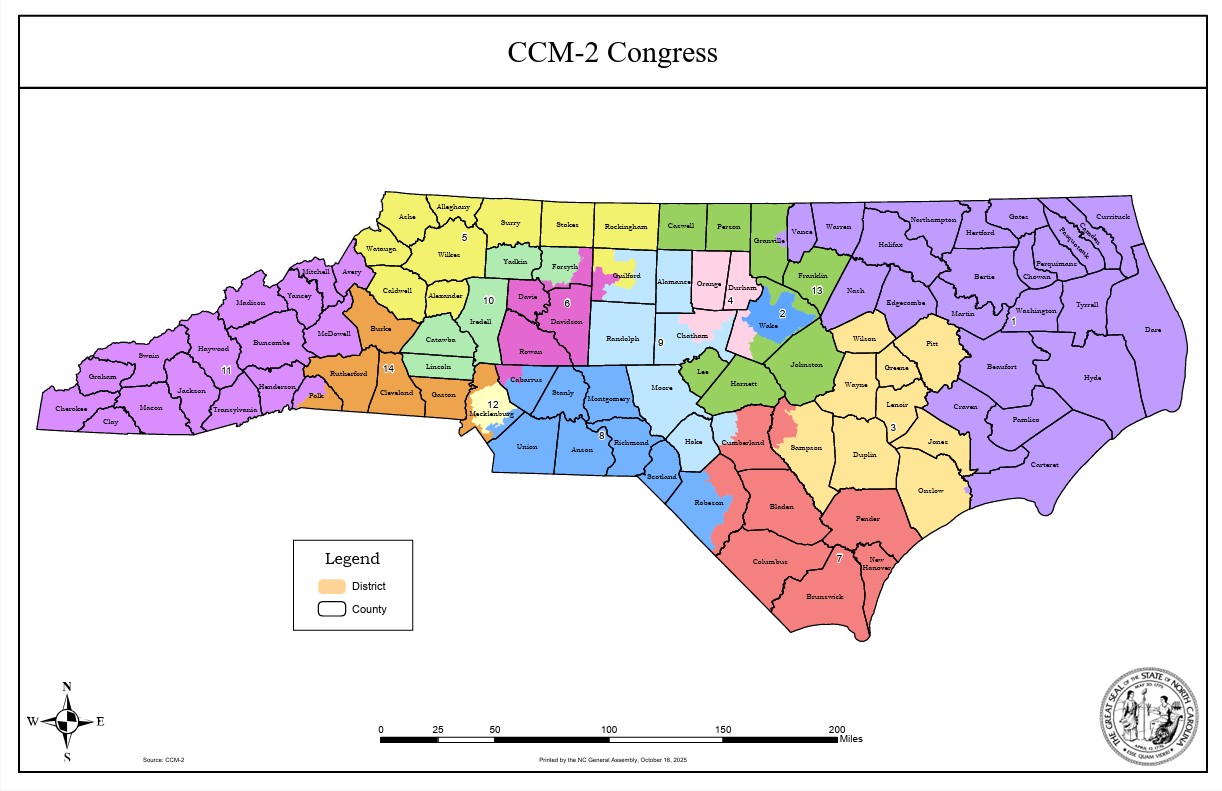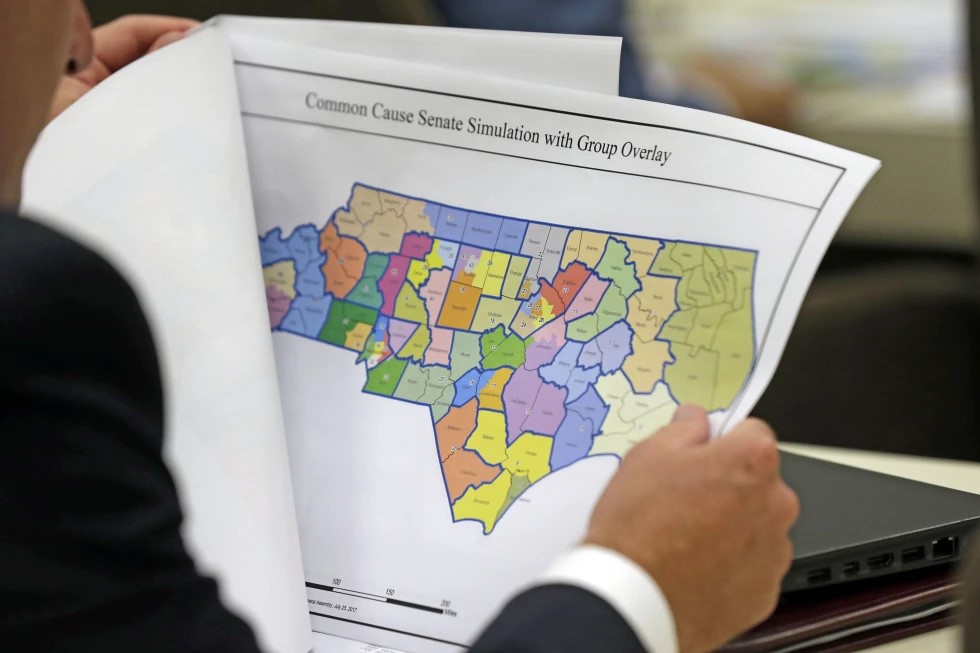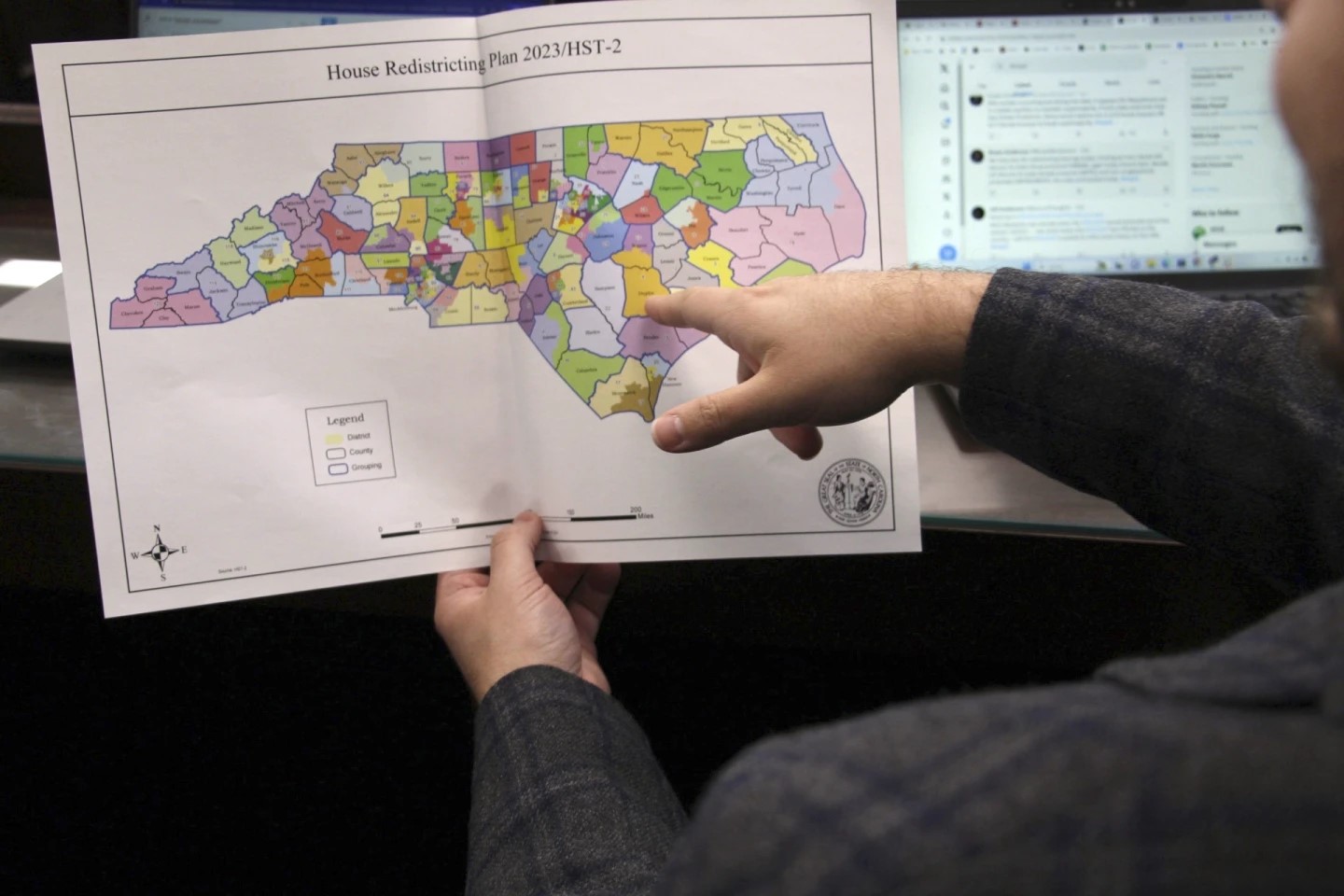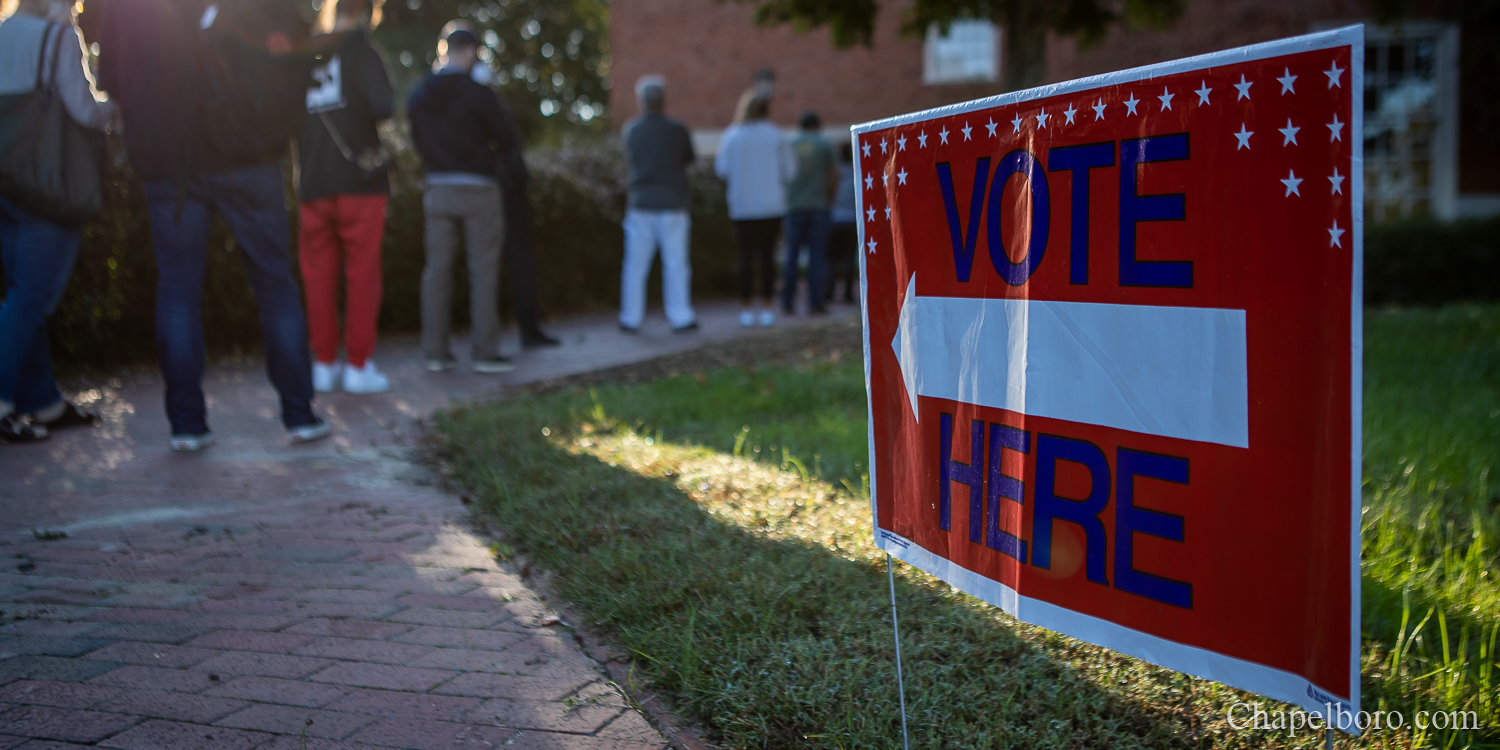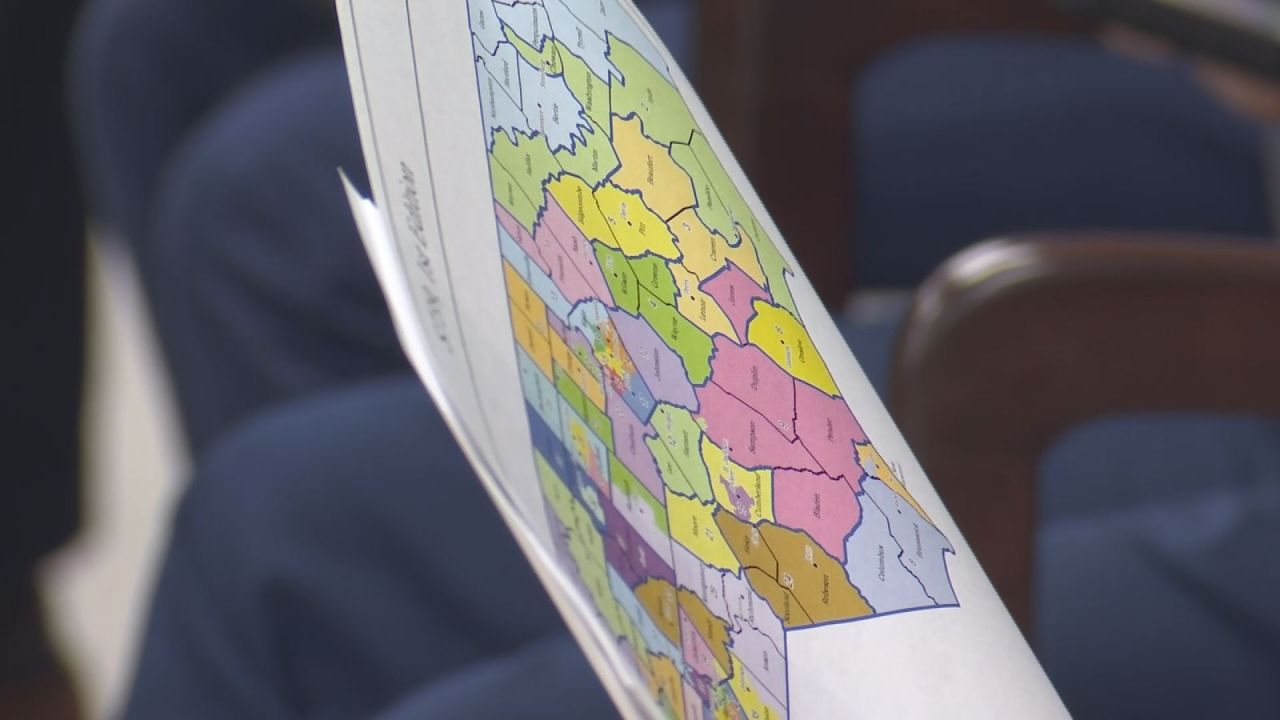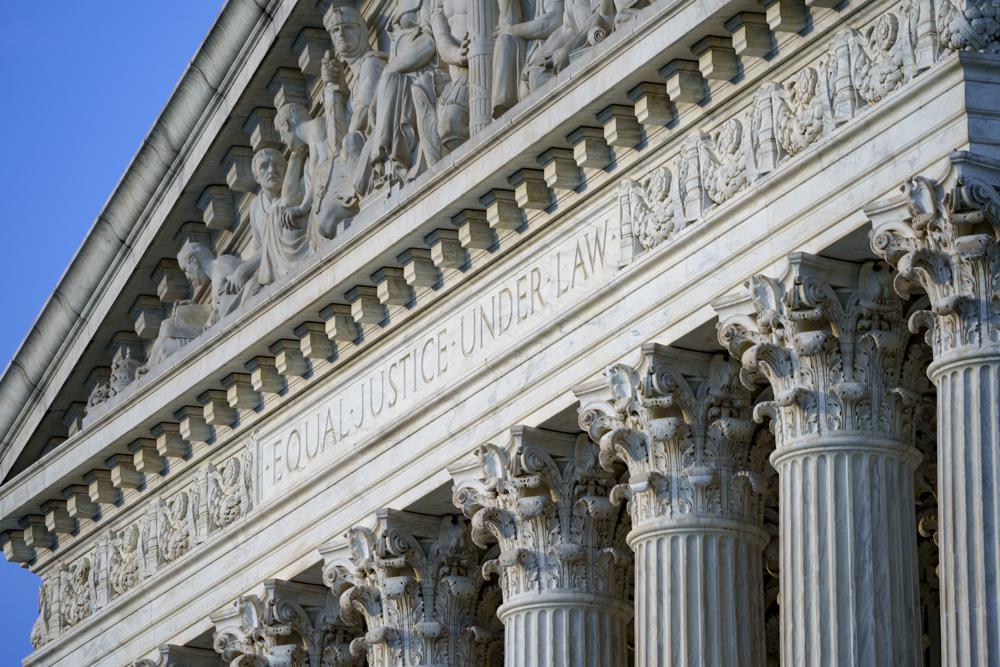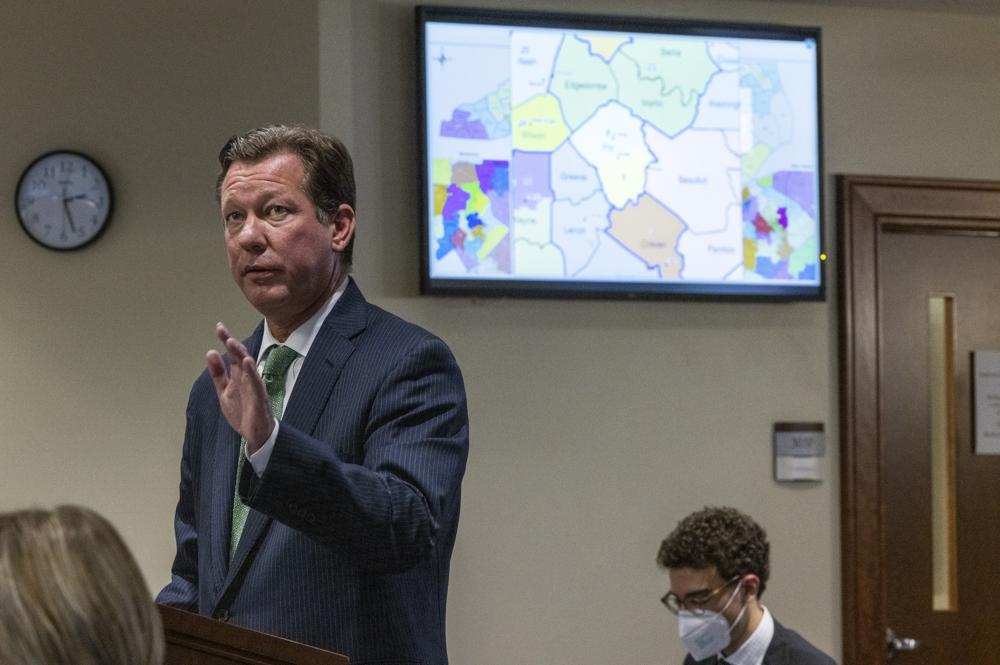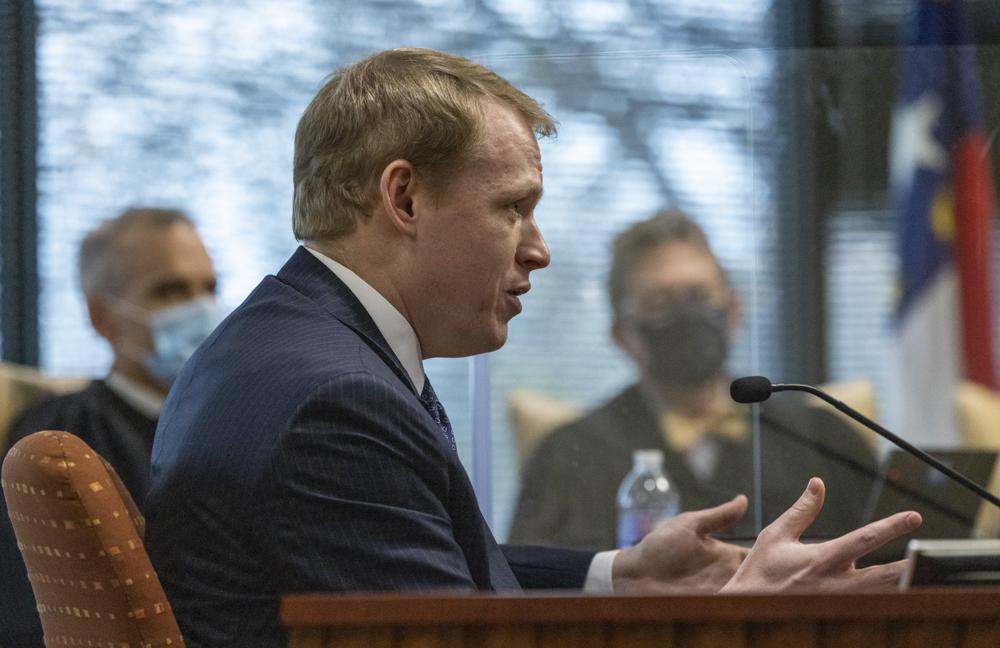A federal court’s decision to strike down North Carolina’s congressional map has cast uncertainty over the state’s 2018 U.S. House races and thrust the state into a national debate over reducing the role of partisanship in drawing electoral districts.
The state’s Republican leaders have vowed to seek a delay to the court’s order that they draw new district lines in the coming weeks. Because partisan gerrymandering cases from other states are before the U.S. Supreme Court, the justices may postpone the effect of the North Carolina ruling.
Either way, Tuesday’s court decision is expected to affect how the state picks members of Congress. New maps would send candidates scrambling and could create a more favorable environment for Democrats, who hold only three of the state’s 13 U.S. House seats. But even if the redrawing is postponed, a political scientist says resentment of “greedy” Republican maps could aid left-leaning candidates now armed with blunt language from federal judges.
“The General Assembly enacted the plan with the intent of discriminating against voters who favored non-Republican candidates … and no legitimate state interest justifies the 2016 Plan’s discriminatory partisan effect,” U.S. Circuit Court Judge Jim Wynn wrote in the majority opinion.
Republican legislative leaders said they would quickly appeal the decision to the U.S. Supreme Court, seeking to delay its implementation. They were meeting privately with their attorneys Wednesday.
“We obviously disagree with the ruling,” House Speaker Tim Moore of Cleveland County told reporters, “and will take it up to the highest court available.”
Meanwhile, Democrats and voting rights activists noted this was the latest in a series of court losses for GOP lawmakers involving the state’s congressional and legislative maps.
Tuesday’s “decision is a mammoth decision,” said the Rev. Anthony Spearman, the state NAACP president.
All three judges agreed partisan motives behind the districting plan violated the Constitution’s equal protection provision because it took the power to elect representatives away from the people. One judge dissented from the majority’s conclusion that the map also violated the First Amendment rights of Democrats in each district.
The judges ordered the General Assembly to approve another set of districts by Jan. 24. Candidate filing for the November congressional elections begins Feb. 12, with primaries set for May. The judicial panel wrote it would hire a special master to draw lines simultaneously in case the legislators don’t, or if the judges decide the legislature’s next edition of the map doesn’t meet constitutional muster.
Sen. Ralph Hise of Mitchell County, the Senate’s Redistricting Committee chairman, said it seemed impossible to draw new maps by the judges’ deadline given all of the new restrictions placed on legislators by Tuesday’s 200-page ruling.
The North Carolina plaintiffs are part of a chorus of voting rights activists nationwide asking the high court to declare for the first time that voters’ constitutional rights can be violated by districting plans that entrench one party’s control. A Supreme Court ruling could change the way that electoral districts are drawn around the country.
The justices heard arguments in the fall over partisan gerrymandering in Wisconsin state legislative districts and could rule in coming months. The high court also agreed to hear a Maryland case over partisanship in that state’s congressional map.
Election law experts wouldn’t be surprised if the high court granted North Carolina Republicans a delay, partly because of difficulties fitting the case into its current term and fast-approaching electoral deadlines. Still, they said it’s difficult to predict the justices’ next step.
“In election cases often times when you’re dealing with an impending deadline you try to keep the status quo,” said Rebecca Green, a law professor who leads the election law program at William & Mary Law School. “Here, it’s hard to tell what to do because if there’s an unconstitutional map, allowing it to proceed is unfair. It does more damage.”
Meanwhile, the ruling puts Republicans in a tight spot. It marks the second time this decade that the GOP’s congressional boundaries in the state have been thrown out. In 2016, another federal panel tossed out two majority black congressional districts initially drawn in 2011, saying there was no justification for using race as the predominant factor in forming them.
Catawba College political scientist Michael Bitzer said winning a delay would preserve maps that could make the GOP look “greedy” as fired-up Democrats are hoping to erode their congressional power in House elections nationwide. But there’s no question new maps would also leave candidates scrambling, especially Republican incumbents who previously won by less than comfortable margins and Democratic challengers with less name recognition.
“They have to reintroduce themselves,” he said of the incumbents. “They could get new voters in a different area that may not even know who these people are.”

